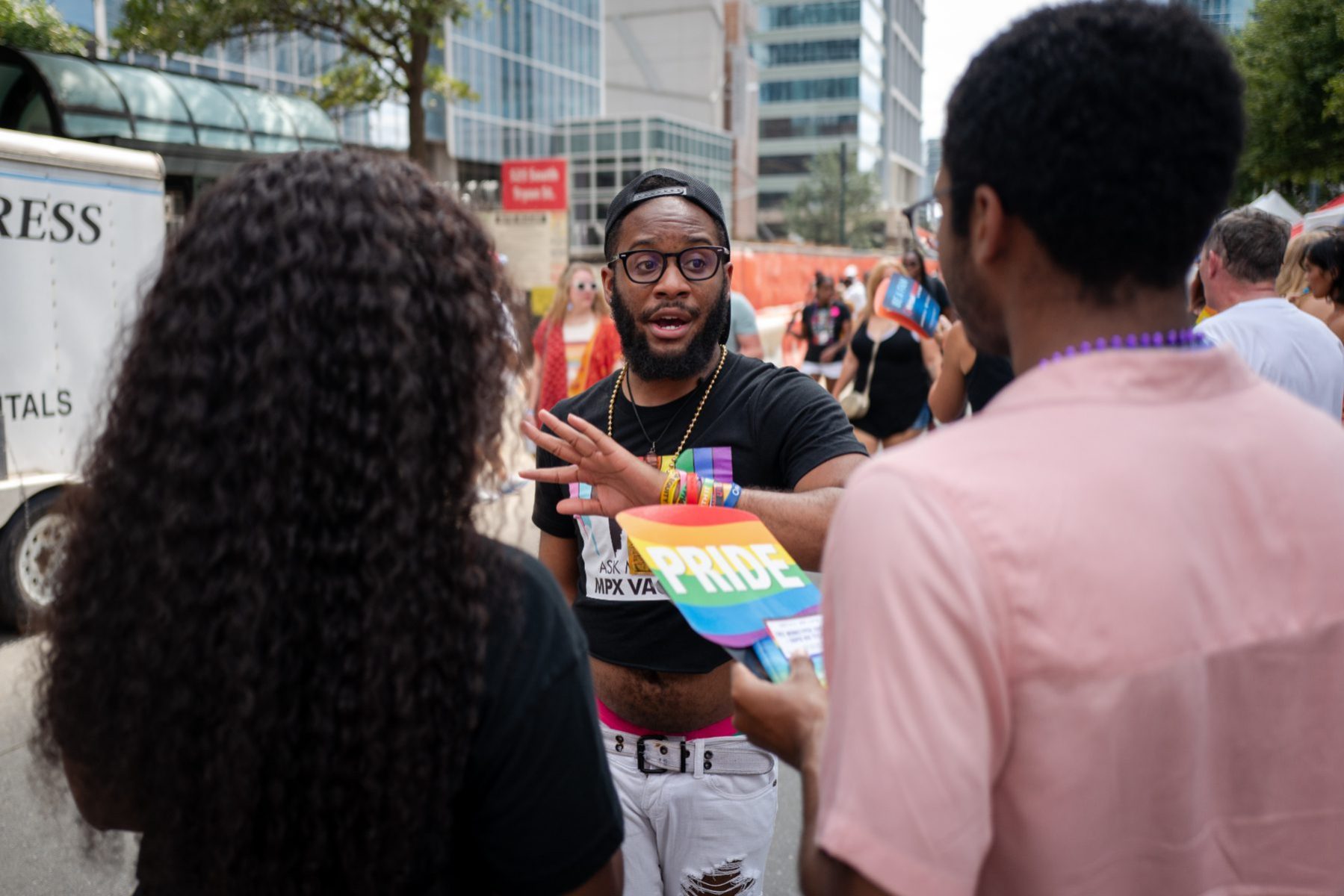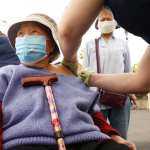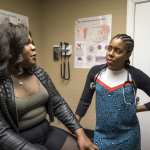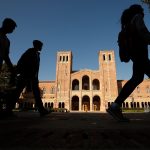Monkeypox virus (MPV) cases are continuing to trend down overall across the United States, but queer Black Americans are still being disproportionately affected, data from the Centers for Disease Control and Prevention (CDC) show.
Black Americans are still not receiving as many MPV vaccine doses as White Americans. That disparity leaves them more vulnerable to the spread of a virus that is rarely lethal but can cause severe pain. This disparity is an inevitable outcome of a broken health care system, experts say — and it could have been avoided if queer people of color were prioritized first in MPV vaccination efforts, and if lessons learned from the COVID-19 were applied.
“We let this thing get as big as it was and we let it find roots in communities that would be vulnerable,” said Matthew Rose, who has worked as a health equity and HIV patient advocate for over a decade.
The name of the virus may also create stigma that disproportionately harms queer Black people, since it includes a word that has been used as a racist trope against Black people for decades. The World Health Organization is seeking experts’ advice on changing the name of the virus, and some state health departments, like California, have already begun referring r to the virus by a shortened name. Two abbreviations, MPX and MPV, are used interchangeably by health departments across the country.
The Biden administration has driven vaccine campaigns at Pride events to reach more LGBTQ+ people of color, saying last month that over 3,000 shots were given at Southern Decadence in New Orleans and over 4,000 shots at Black Pride in Atlanta. The CDC has also launched a vaccine equity pilot program encouraging local health departments to apply for an allotment of vaccine worth 50,000 intradermal doses — if the department proposes how to reach at-risk populations most affected by MPV, especially Black and Hispanic queer men.
In an effort to reduce stigma associated with MPV, the Biden administration announced last month that intradermal JYNNEOS shots — which had been given on the forearm and typically leave a noticeable red bump — can be received on the shoulder or upper back, where clothes can cover the mark.
While these are important steps, experts say that more needs to be done — especially to reach low-income queer people without the means to travel to Pride events, to reach queer Black people outside of one-time events that could complicate scheduling a second dose, and to center Black queer people in discussions around stigma.
Making vaccines more readily available is also one part of the full picture needed to address the deeper disparities at work: Quality health care, the ability to travel and the ability take time off from work to get vaccinated and deal with potential side effects are all privileges most easily obtained by gay men who are wealthy and White.
Syra Madad, an infectious disease epidemiologist at Harvard’s Belfer Center for Science and International Affairs, is frequently asked about lessons learned from the COVID-19 pandemic. MPV vaccine inequities show that in the overall response to another — and far less lethal — outbreak, the country is still putting equity last, she said.
“If we learned anything, we certainly haven’t applied it,” she said. Some progress has been made, she said: Data on MPV vaccine disparities is crucial, and the Biden administration is putting some strategies in place.
A Kaiser Family Foundation analysis of CDC data from September 23 shows the stark disconnect between how many MPV vaccines have reached queer Black Americans and how many have contracted the virus. Among cases with race and ethnicity reported — about two-thirds of all reports — Black Americans account for 35 percent of cases, nearly three times their share of the United States population.
Thirteen percent of the first JYNNEOS vaccine doses went to Black people, the analysis found. While that might be proportionate in terms of the national population, experts say it shows the administration did not prioritize queer Black Americans and other people of color from the beginning — because past outbreaks, like HIV and COVID-19, have shown repeatedly who will be most affected and who will fall through the cracks of a “generalized” outbreak response, hamstrung by poverty and inequitable access to health care.
The country’s MPV response should have been focused on reaching Black people and other people of color from the beginning — and health departments need to specifically account for race. Otherwise vaccine outreach will default to White people and those with privilege, said Rose.
If you first take care of those who are the least likely to have access to good health care, then those who already have access will also benefit, he said. To Rose, what’s frustrating is that existing tools — like JYNNEOS, the two-dose, FDA-approved vaccine, and TPOXX, the antiviral and primary pain treatment for MPV, were available — but poor early deployment fumbled the response.
Gay and bisexual men, or men who have sex with men, are disproportionately affected by the virus and make up the majority of reported cases. In the United States, two deaths have been attributed to MPV. Severely immunocompromised people or those with weakened immune systems may need to seek treatment more urgently if they contract the virus, which spreads primarily through intimate or prolonged skin-to-skin contact.
The CDC’s vaccine equity program should require local health departments to interrogate what barriers are keeping Black and Hispanic or Latino men from getting MPV vaccine, then provide a vaccine allotment to develop a program based in that reality, said Perry Halkitis, dean of the Rutgers School of Public Health. Actually talking to Black and Hispanic men to learn their experiences is key, he said.
“We know we are not building the right infrastructure to reach these people, and we’ll still say that they’re hard to reach,” Rose said. “Black people aren’t hard to reach.”
Bringing pop-up vaccination clinics to Black and brown neighborhoods without as many health clinics, and bringing those pop-up clinics to places outside of clubs and parties — like church groups, book clubs and LGBTQ+ sports clubs — are crucial to the response, Rose said. Working with Black influencers and bringing more trusted Black messengers onto the administration’s MPV response team are also key, he said.
Announcing or sharing MPV vaccine information primarily on social media excludes those without Internet access, Madad said, as does announcing new or limited vaccine appointment slots during workday hours. Both tactics, which she observed during New York City’s early response, cater to the privileged, she said. Mobile vaccination vans — which some states, like Colorado, have implemented — are key to reaching more at-risk populations and to offset some of the extra barriers faced by people of color, Madad said.
Tackling the racial disparities in MPV vaccine outreach is only one piece of how the country’s public health system needs to grapple with systemic racism, Halkitis said. As is the case with HIV, and with COVID-19, viruses are equal opportunity destroyers — but over time, outbreaks become lodged in disenfranchised and low-income parts of a population, he said.
“This pattern is easy to predict. Why we’re not intervening on it ahead of time is my concern,” Halkitis said.
For Lindsey Dawson, director for LGBTQ health policy and associate director for HIV policy at the Kaiser Family Foundation, turning the country’s unequal MPV response around also comes down to local and state health departments. The federal government creating an equity pilot program and doing vaccine outreach at Pride events still means that local jurisdictions need to keep an open door to welcome that work, she said.
More data is also needed from state and local health departments on race and ethnicity among MPV cases to get a full picture of how deep the disparities are, Dawson said.
The CDC did not respond to requests for comment on plans to reach more queer people of color in the Biden administration’s MPV vaccination outreach or on the agency’s vaccine equity program.
Jasmine Mithani contributed reporting.







